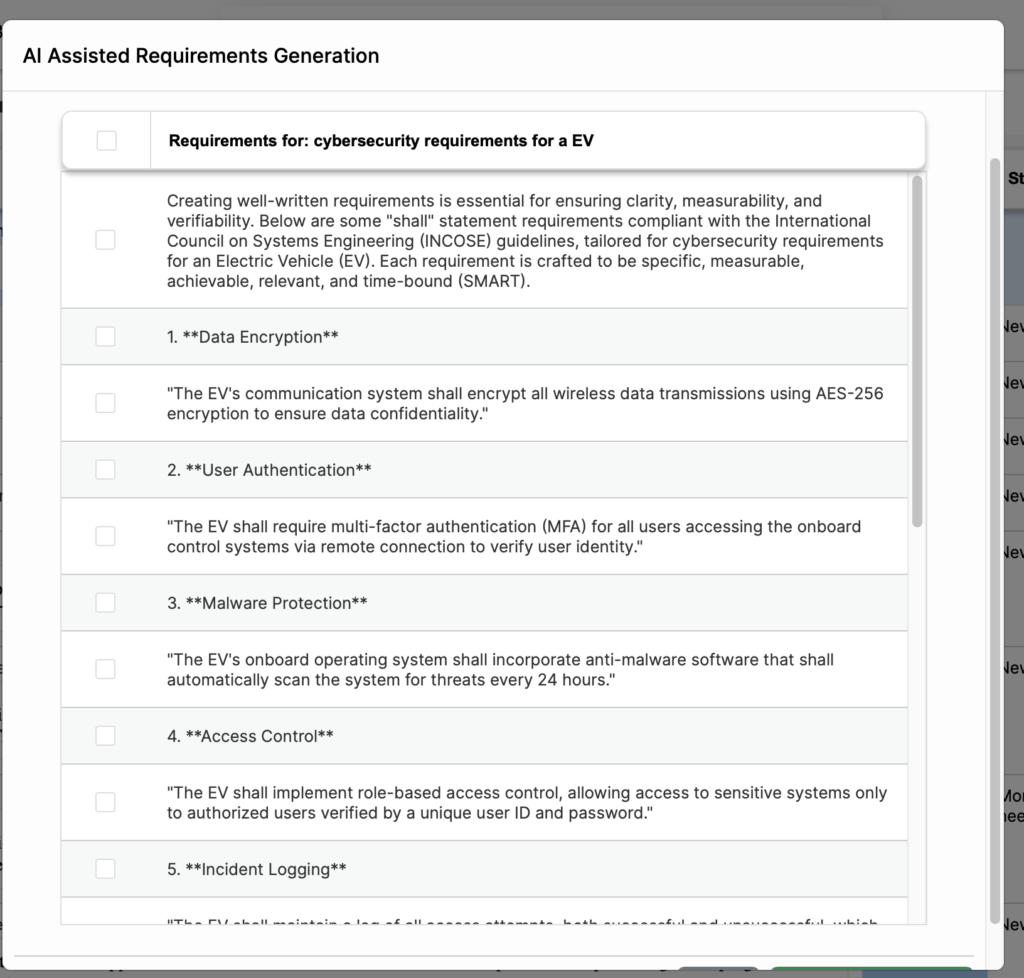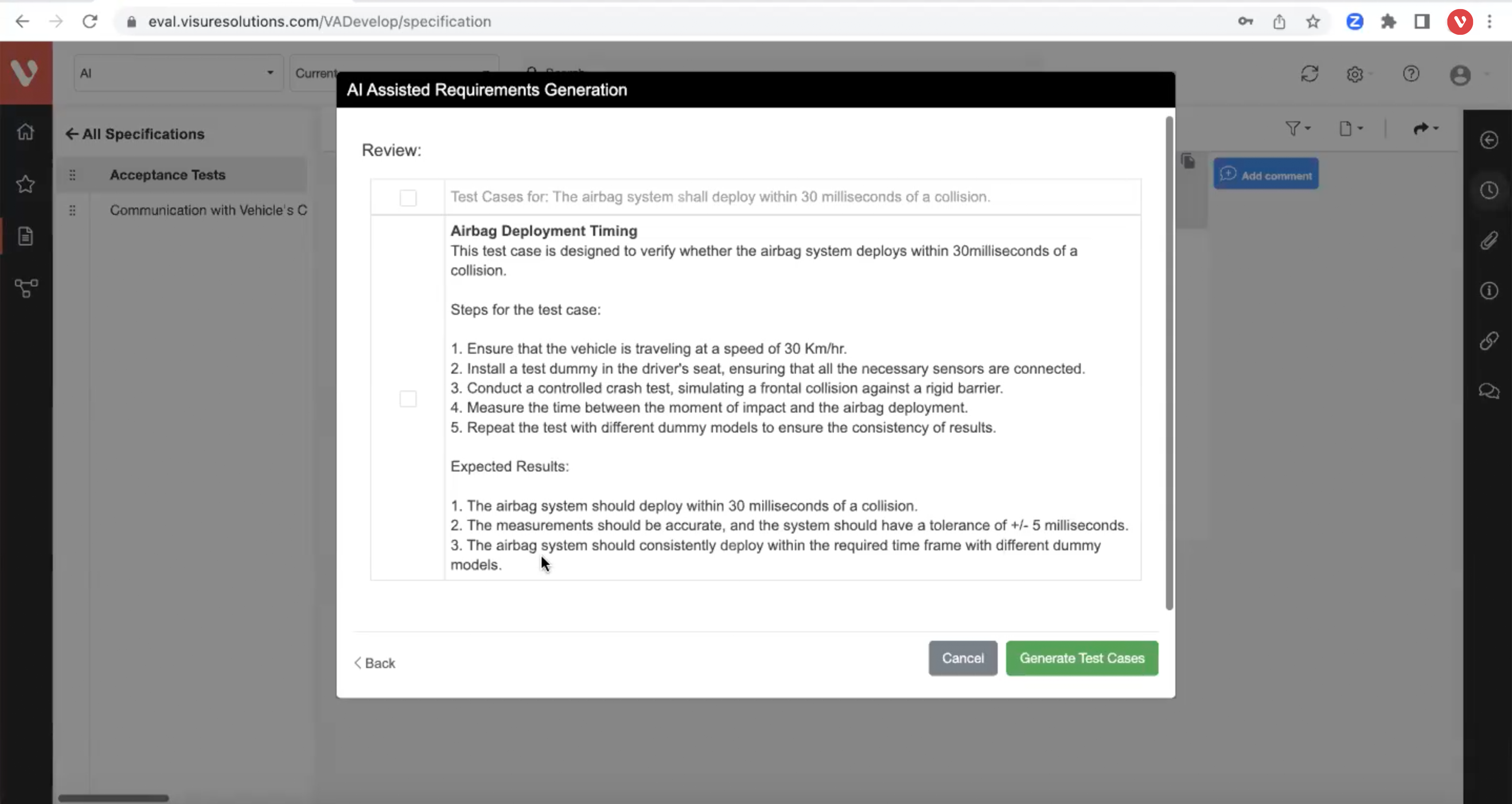Introduction
Artificial Intelligence (AI) is revolutionizing the automotive industry by enhancing how vehicles are designed, manufactured, operated, and maintained. From self-driving cars and AI-powered infotainment systems to predictive maintenance and automated supply chains, AI is driving a new era of innovation and efficiency across the entire automotive ecosystem.
The importance of artificial intelligence in modern vehicles lies in its ability to improve safety, personalize user experiences, reduce operational costs, and accelerate the shift toward autonomous and connected vehicles. With AI, manufacturers can streamline production, enhance vehicle diagnostics, and deliver smarter, more intuitive driving experiences.
As of 2024, the adoption of AI in the automotive industry is rapidly growing. Leading automakers and suppliers are investing heavily in AI-powered solutions to stay competitive in a fast-evolving market. From AI in car manufacturing to AI in autonomous vehicles, artificial intelligence is no longer a futuristic concept—it’s a critical component of today’s automotive innovation strategy.
Key Areas Where AI is Used in the Automotive Industry
Autonomous and Self-Driving Vehicles
AI is the backbone of autonomous vehicle technology, enabling cars to perceive their environment, make decisions, and navigate safely without human intervention.
- Machine learning in autonomous vehicles allows systems to continuously learn from driving data, improving performance over time.
- Computer vision and sensor fusion combine inputs from cameras, LIDAR, radar, and ultrasonic sensors to create a real-time, 360° understanding of the surroundings.
- AI algorithms process this data to detect obstacles, interpret traffic signs, and predict the behavior of pedestrians and other vehicles. Leading companies such as Tesla, Waymo, NVIDIA, and Cruise are pioneering advancements in AI for self-driving cars.
AI in Car Manufacturing and Assembly
Artificial intelligence is optimizing every stage of car manufacturing through automation and intelligent systems.
- Smart robotics powered by AI streamline assembly lines, increasing speed and precision.
- AI-driven quality control uses computer vision to identify defects in real time, reducing waste and recalls.
- Predictive maintenance in automotive production minimizes equipment downtime by forecasting potential failures based on historical and real-time data.
Vehicle Safety and Driver Assistance Systems
AI is elevating vehicle safety through advanced driver assistance technologies.
- AI-powered ADAS features like lane-keeping assistance, adaptive cruise control, and emergency braking rely on real-time data processing to assist drivers and prevent accidents.
- Risk assessment systems analyze surroundings, driver behavior, and traffic conditions to issue alerts or take action. These innovations are reducing fatalities and setting new standards for automotive safety.
Infotainment and In-Car Personal Assistants
Modern cars now offer AI-driven infotainment systems that deliver a connected, intelligent driving experience.
- Natural language processing (NLP) enables drivers to interact with systems through voice commands for navigation, music, and communication.
- AI personalizes content and settings based on user preferences and driving habits, creating customized in-car experiences.
Predictive Maintenance and Vehicle Diagnostics
AI plays a key role in vehicle diagnostics by analyzing real-time sensor data to detect anomalies before they become serious issues.
- Predictive maintenance systems alert owners or fleet managers when a component is likely to fail, reducing downtime and repair costs.
- AI-driven diagnostics improve efficiency, reliability, and the life span of automotive components.
Connected Vehicles and IoT Integration
AI enhances the capabilities of connected cars by enabling real-time communication between vehicles, infrastructure, and networks.
- Through V2X (Vehicle-to-Everything), AI enables cars to share data for safer navigation, traffic optimization, and hazard detection.
- AI analyzes massive data streams from IoT sensors to support real-time decision-making, boosting both safety and performance.
AI in Automotive Engineering and Design
Artificial Intelligence is reshaping automotive engineering and design by enabling smarter, faster, and more efficient product development processes. Engineers now rely on AI to simulate real-world performance, optimize vehicle structures, and accelerate time-to-market.
- AI-powered simulations and crash testing allow automotive engineers to predict and analyze vehicle behavior under various conditions without relying solely on physical prototypes. These simulations save costs and improve safety by identifying structural weaknesses early in the design phase.
- Generative design algorithms use machine learning to evaluate thousands of design alternatives based on predefined constraints such as weight, material strength, and aerodynamics. AI helps engineers optimize vehicle components for performance, fuel efficiency, and sustainability.
- By automating repetitive engineering tasks and providing intelligent recommendations, AI significantly accelerates product development, enabling manufacturers to bring innovative vehicles to market faster than ever.
AI in the Automotive Supply Chain
Artificial Intelligence is playing a pivotal role in transforming the automotive supply chain, making it smarter, faster, and more resilient. By leveraging AI technologies, manufacturers and suppliers are improving operational efficiency, reducing costs, and minimizing disruptions.
- AI for inventory optimization enables real-time tracking and intelligent stock management across multiple facilities. AI algorithms analyze demand patterns, lead times, and supplier performance to ensure optimal inventory levels, reducing both overstock and stockouts.
- Demand forecasting and logistics automation are driven by machine learning models that predict consumer demand, market trends, and seasonal fluctuations with high accuracy. AI-powered logistics systems automate routing, scheduling, and warehouse management to streamline delivery and reduce lead times.
- Real-time supply chain analytics powered by AI offer end-to-end visibility across the entire supply chain. By continuously analyzing data from IoT sensors, ERP systems, and external sources, AI identifies bottlenecks, predicts delays, and suggests corrective actions—ensuring smooth operations even during market volatility.
Top Platforms and Tools for AI in Automotive Sector
The automotive industry increasingly relies on advanced AI platforms to drive innovation, efficiency, and safety across the product lifecycle. From autonomous vehicle development to requirements engineering, these tools provide the intelligence and automation needed to compete in a rapidly evolving market.
Visure Requirements ALM Platform
The Visure Requirements ALM Platform is a leading AI-powered solution for requirements engineering in the automotive sector. It enables automotive companies to manage complex requirements, testing, risk, and compliance processes while accelerating development and maintaining quality across the entire automotive lifecycle.

Key features:
- AI-driven requirements authoring and validation
- Live traceability across requirements, test cases, and risks
- Support for ISO 26262, ASPICE, and other automotive standards
- Automated impact analysis and change management
- Seamless integrations with tools like MATLAB Simulink, Jira, and IBM DOORS

By offering AI-enabled compliance and traceability, Visure helps streamline development in safety-critical automotive applications, making it ideal for OEMs and suppliers building autonomous, connected, and electric vehicles.
Benefits of AI in the Automotive Industry
The integration of Artificial Intelligence in the automotive industry delivers significant advantages across the entire vehicle lifecycle—from design and manufacturing to driving and maintenance. Here are the top benefits transforming the sector:
Increased Efficiency and Cost Savings
AI automates complex and repetitive processes in car manufacturing, supply chain logistics, and product development, reducing labor costs and production time.
- Predictive maintenance minimizes unplanned downtime by identifying potential failures before they occur.
- AI-driven inventory optimization ensures just-in-time availability, reducing storage costs and waste.
Enhanced Safety and Predictive Insights
AI enhances vehicle safety through advanced systems that assist or take over driving tasks.
- ADAS (Advanced Driver Assistance Systems) powered by AI reduce human error, helping prevent collisions.
- AI also powers real-time risk assessment and crash simulations during vehicle design to improve structural integrity.
Personalized Driving Experiences
AI enables smart infotainment systems and in-car assistants that adapt to driver preferences and behavior.
- Natural Language Processing allows voice-driven control over navigation, entertainment, and vehicle functions.
- AI continuously learns from driver habits to deliver personalized recommendations and optimized user interfaces.
What are the Challenges of Implementing AI in the Automotive Industry? How to Overcome Them?
While the integration of AI in the automotive industry offers transformative benefits, it also presents several critical challenges that must be addressed to ensure safe, efficient, and sustainable adoption.
Data Privacy and Cybersecurity Risks
Connected and autonomous vehicles generate and transmit vast amounts of sensitive data—from driver behavior to real-time location tracking. This opens up vulnerabilities to cyberattacks and privacy breaches.
How to Overcome:
- Implement end-to-end encryption and secure data architecture
- Follow global data protection regulations like GDPR and CCPA
- Employ AI-driven cybersecurity systems to detect anomalies and respond to threats in real time
Regulatory and Safety Concerns
The rapid pace of AI innovation in autonomous vehicles often outpaces legislation and global safety standards, creating uncertainty and potential liability issues.
How to Overcome:
- Adhere to standards like ISO 26262, SAE levels of autonomy, and UN ECE regulations
- Collaborate with regulators and testing bodies for safe AI deployments
- Use AI-powered simulation and testing platforms to validate safety under various driving conditions
High Initial Investment and Integration Barriers
Developing and deploying AI-powered automotive systems involves significant R&D costs, skilled workforce requirements, and system compatibility issues.
How to Overcome:
- Start with scalable AI solutions (e.g., Visure Requirements ALM Platform) for incremental adoption
- Leverage AI integration platforms and cloud-based tools to reduce infrastructure costs
- Invest in workforce training and collaboration with AI vendors
Future of AI in the Automotive Industry
The future of Artificial Intelligence in the automotive industry promises revolutionary advancements that will redefine mobility, safety, and personalization. As AI technologies mature, the automotive sector will witness exponential innovation driven by smarter systems, real-time decision-making, and deeper human-machine collaboration.
AI Trends Shaping Automotive Innovation
The future will be powered by:
- Level 4 and 5 autonomous vehicles using advanced AI algorithms
- AI-based software-defined vehicles (SDVs) with continuous over-the-air updates
- Predictive AI for real-time diagnostics and vehicle personalization
These trends will accelerate AI adoption in connected cars, smart mobility, and urban transportation systems.
Role of Generative AI and Edge Computing
- Generative AI will optimize vehicle design, simulate driving scenarios, and even personalize marketing strategies.
- Edge computing will enable real-time AI processing at the vehicle level, reducing latency for safety-critical functions like obstacle detection and V2X communication.
Together, these technologies will drive intelligent, real-time decision-making in connected vehicles.
Forecasts for 2026 and Beyond
By 2026 and beyond, industry analysts forecast:
- Over 60% of new vehicles to feature AI-enabled systems
- Rapid growth in AI-driven electric and autonomous vehicle platforms
- Increased demand for AI-based automotive software, predictive maintenance, and AI-powered design tools
As regulatory frameworks evolve and infrastructure improves, AI in the automotive industry will become the backbone of next-generation mobility.
Conclusion
Artificial Intelligence is revolutionizing the automotive industry, enabling advancements that were once only imagined. From autonomous driving and predictive maintenance to connected vehicles and AI-enhanced manufacturing, AI is delivering smarter, safer, and more efficient mobility solutions.
Despite challenges such as cybersecurity, regulatory compliance, and high integration costs, the future of AI in the automotive industry looks incredibly promising. With the rise of generative AI, edge computing, and AI-powered platforms, automakers are accelerating innovation across the entire vehicle lifecycle.
To stay ahead in this rapidly evolving landscape, companies must adopt robust, scalable, and AI-driven solutions that ensure quality, compliance, and end-to-end traceability.
Take the first step toward transforming your automotive development process—explore the power of Visure’s AI-enabled Requirements ALM Platform. Start your 14-day free trial with Visure today and experience the future of intelligent automotive engineering.
